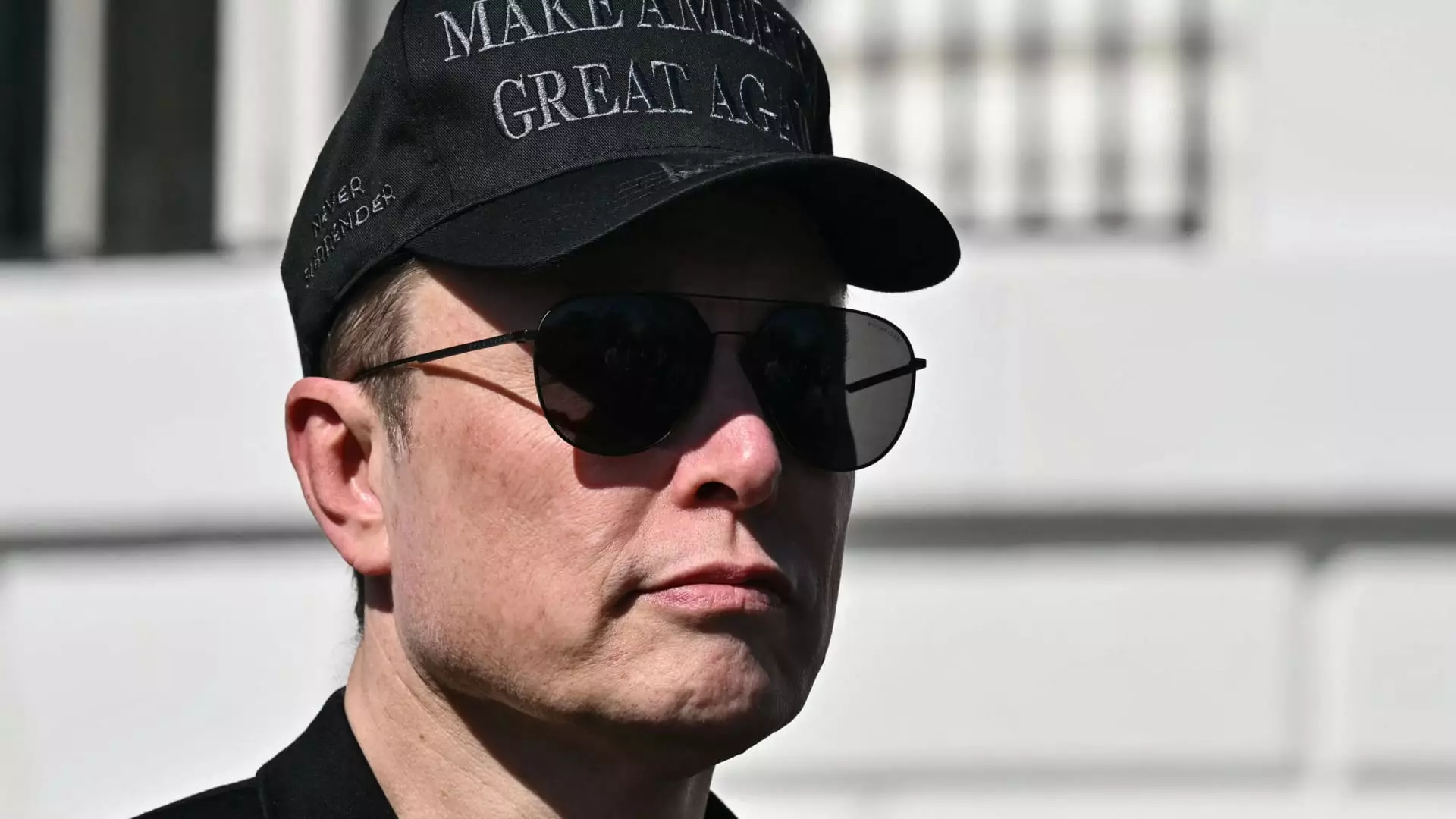Elon Musk, the billionaire visionary and CEO of Tesla and SpaceX, finds himself embroiled in yet another legal controversy, this time involving the U.S. Securities and Exchange Commission (SEC). The recent court summons he received shines a harsh spotlight on the intricacies of corporate governance and regulatory compliance in the technology sector. Musk’s case, centered around his alleged failure to disclose significant stock purchases related to his 2022 Twitter acquisition, underlines the tension between innovative entrepreneurship and legal accountability.
The SEC’s lawsuit positions Musk as a figure who must grapple with the consequences of his high-stake decisions. The agency alleges that he failed to disclose his ownership of over 5% of Twitter—the threshold that legally mandates public disclosure of stock holdings—within the required ten-day period. This lapse is not merely a technical oversight; it’s an accusation that Musk may have benefitted financially to the tune of $150 million by delaying this disclosure, a figure that raises eyebrows regarding integrity in corporate dealings.
The Method of Delivery: A Public Standoff
In an almost theatrical turn of events, the manner in which this summons was served adds a layer of drama to the proceedings. A process server tried to deliver the subpoenas at SpaceX’s headquarters, only to be met with security resistance that culminated in the uncomfortable act of leaving the documents on the ground. This unsettling scene raises questions about not only Musk’s accessibility to legal processes but also the broader implications of power dynamics when titans of industry interact with legal and regulatory frameworks.
The fact that security personnel attempted to deny entry to the server resonates with the theme of operational opacity often linked to powerful tech moguls. It symbolizes a potential disregard for regulatory institutions and a pattern of behavior where corporate giants might feel insulated from standard legal procedures. Such incidents reflect a growing disconnection between the establishment and the vast influences operating within Silicon Valley and beyond.
The Financial Playground: Where Ethics Meet Profit
Musk’s approach to corporate ownership isn’t new; it speaks to a larger narrative in the tech industry, where rapid growth and aggressive strategies often overshadow ethical considerations. His eventual acquisition of Twitter, now rebranded as X, raised questions about how significant financial leverage can distort usual ethical obligations. The fallout from this SEC lawsuit reveals a corporate climate that tends to prioritize powerful personality over regulatory rigor.
Moreover, Musk’s legal troubles echo previous experiences, notably when he settled fraud charges tied to misleading tweets about Tesla’s finances, resulting in a $20 million fine. Such repeated confrontations with regulatory bodies showcase a pattern of actions closely examined under the lens of corporate governance ethics. Yet, unlike typical corporate leaders, Musk embodies the archetype of a risk-taker, seemingly believing that innovation can outweigh legal caution.
Political Ties: The Broader Implications
Adding fuel to the fire, Musk’s relationship with political figures, notably the Trump administration, intricately ties the worlds of finance, technology, and politics. It is fascinating how Musk’s influence transcends just business, as he delves into supporting political agendas, influencing public discourse through social media, and molding the narratives that accompany his ventures. His financial backing of Trump’s bid for presidency, alongside his role as an advisor to the administration, paints a picture of a man leveraged deeply within both corporate and political avenues.
Yet, it begs the question—does this intertwining of power shield Musk from the full ramifications of corporate accountability? With regulatory bodies like the SEC constrained by budget cuts and policy changes under Trump’s leadership, Musk’s situation represents a microcosm of a larger battle between financial interests and regulatory oversight.
The Impending Legal Battle: anticipation and uncertainty
As Musk prepares to respond to this latest legal challenge by April 4, the anticipation in the market and media is palpable. Will he face consequences that could shift the tide of public opinion, or will his robust public persona once again prevail in the face of legal scrutiny? Regardless of the outcome, this controversy feeds into the ongoing dialog about the intersection of power, technology, and accountability, making a case study of Musk that’s difficult for any entrepreneur to ignore.
In navigating the complexities of modern corporate governance, Musk’s saga serves as a lesson—provoking thoughts on the implications of entrepreneurial audacity in a world where the stakes are bewilderingly high.

